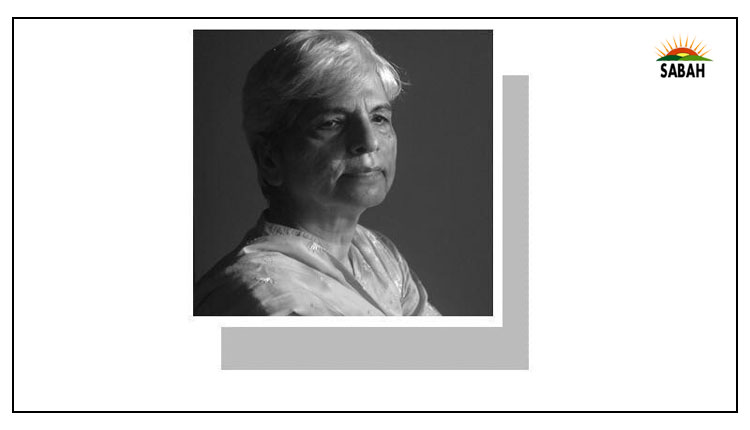Why the hurry? …..Zubeida Mustafa
WE are a nation in a hurry. When we set out to do something, we do not plan and want the task done right away. In the case of a child’s education, this penchant for haste has a negative impact on the child as well as on society. There is, after all, an appropriate time for whatever has to be done. You cannot speed it up at will. I remember Dr Salimuzzaman Siddiqui, a renowned scientist, telling us that his experiments required him to mix various elements in a test tube and then wait for days to give nature time to do its work.
Unfortunately, our educationists believe they are exempted from complying with this basic law of nature. They blatantly disregard the psychological, mental and physical development of the child when planning school education. Often, children are expected to perform feats beyond their natural capability as their minds and bodies are still in the process of growing. Any activity forced on children prematurely harms them.
Some features of our education system go to absurd limits that are detrimental to children. For instance, why are our children required to squeeze their entire schooling into a period of 12 years? That presumes that children are ready for a job or for college at the age of 15/16 when they sit for their Matric exam. Yet Nadra deems a person to be an adult at age 18 when he can obtain his CNIC. In the West, children spend 14 years in school and graduate from school at 18.
Worse is the practice of burdening young children with work from the day they step into school. They are given homework and go to private tutors after school. Their daily work is so substantial that young children spend hours struggling with their studies. Testifying to the magnitude of their workload is the heavy schoolbag that school-going children have to carry with them.
Young children spend hours struggling with their studies.
Their workload does not allow the students time to play. Most schools give no importance to sports and physical exercise, regarding them as ‘luxuries’ that can be dispensed with. Most schools do not even have playgrounds in spite of the well-recognised fact that play should be an integral part of children’s education.
To ensure that they are learning, which is erroneously believed to be best for them, teachers are required to assess their pupils by holding tests and exams regularly. Exams are so frequent and rigorous that they become a nightmare for the children. All this is actually not needed. A good education system devises other ways of assessing young students’ progress.
Primary education should be designed to facilitate the child’s development, socialisation and confidence. In a way it is the preparatory phase. Studies should be in proportion to the students’ mental age. They should familiarise the child with school as a friendly and enjoyable place. Work should be interesting and not beyond the child’s understanding. The idea should be to prepare students for the heavier workload that awaits them in senior school. The aim should be to help a child realise her potential at her age through play and learning material while focusing on speaking, reading and writing skills, with understanding.
That is why it makes sense to begin a child’s schooling in her home language. Thus alone will a child explore, create and articulate her thoughts. Acquisition of knowledge from books should come later in high school. Another language should be taught after the child has acquired fluency in her own language. To determine when that should be introduced and how, requires experience and understanding of the child. A moderate approach always helps. When children are given challenging assignments before they are ready for them, they lose interest in their studies.
Pakistan’s school system does not observe these guidelines and has therefore spawned many evils. On the one hand, excessive competitiveness along with an absence of team spirit stresses many children. On the other are the youth who are disinterested in books and studies as these were forced upon them. That has also given rise to the rote learning culture.
Teachers are no longer the super-heroes of yesteryear as teaching is no longer their passion. It is a source of livelihood. If educators complain of children being undisciplined, they need to look at the teachers. Happy students enjoying their studies usually pose no problem. Teachers who are failing to perform are responsible for the malaise in our education system. Their absenteeism and the malpractices they allow as examiners are to blame. Wouldn’t these weaknesses in teachers give rise to intense emotional insecurity in the child? The adults of today were the children of yesterday. Their insecurity manifests itself in the political instability, corruption and economic uncertainty which grip the country today.
www.zubeida-mustafa.com
Courtesy Dawn, August 25th, 2023












